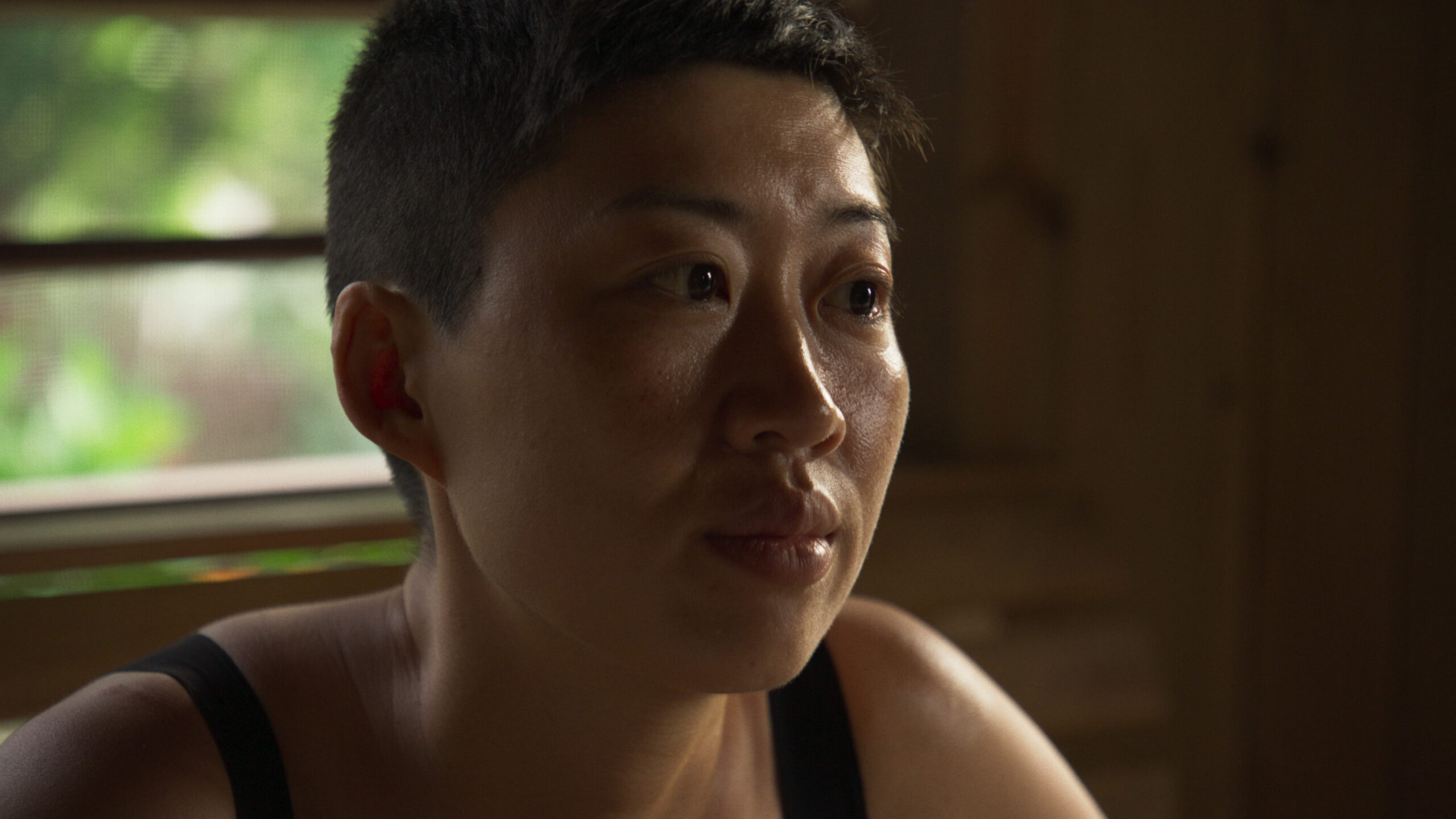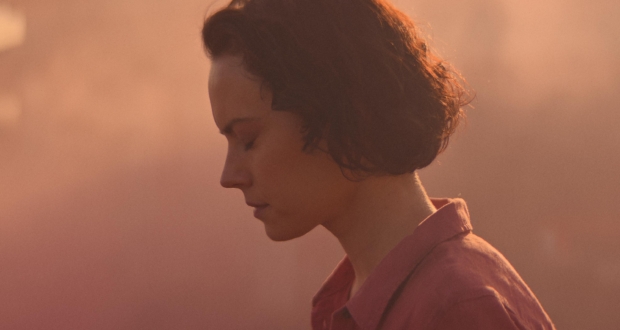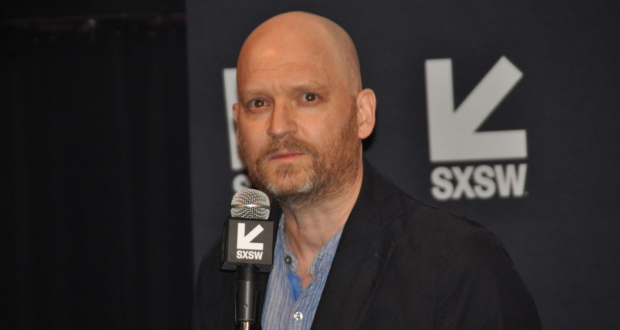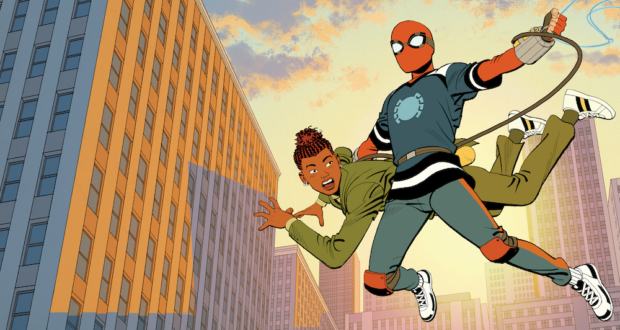The documentary “7 Beats Per Minute,” directed by Canadian/Chinese/Mongol director Yuqi Kang had its World Premiere on March 8th, Friday , the first day of SXSW. Yuqi Kang, the director of “A Little Wisdom,” gifts us with a gorgeous film. Every frame of this story about freedivers is superbly composed. It’s a stroll through a world class exhibit of paintings or photographs, with expert cinematography supervised by Kalina Bertin and Alex Lampron.
The documentary tracks Chinese freediver Jessea Lu (Lu Wenjie) as she attempts to break the world freediving record. Jessea has won 15 Gold Medals in international competition. She seems to have a compulsion to go deeper and force herself “so close to death and close to the abyss.” To the uninitiated, freediving seems less a sport than a suicidal compulsion. Jessea Lu trains herself to hold her breath for long periods of time but during her world record dive attempt, she is unconscious for nearly 8 minutes after reaching the surface.
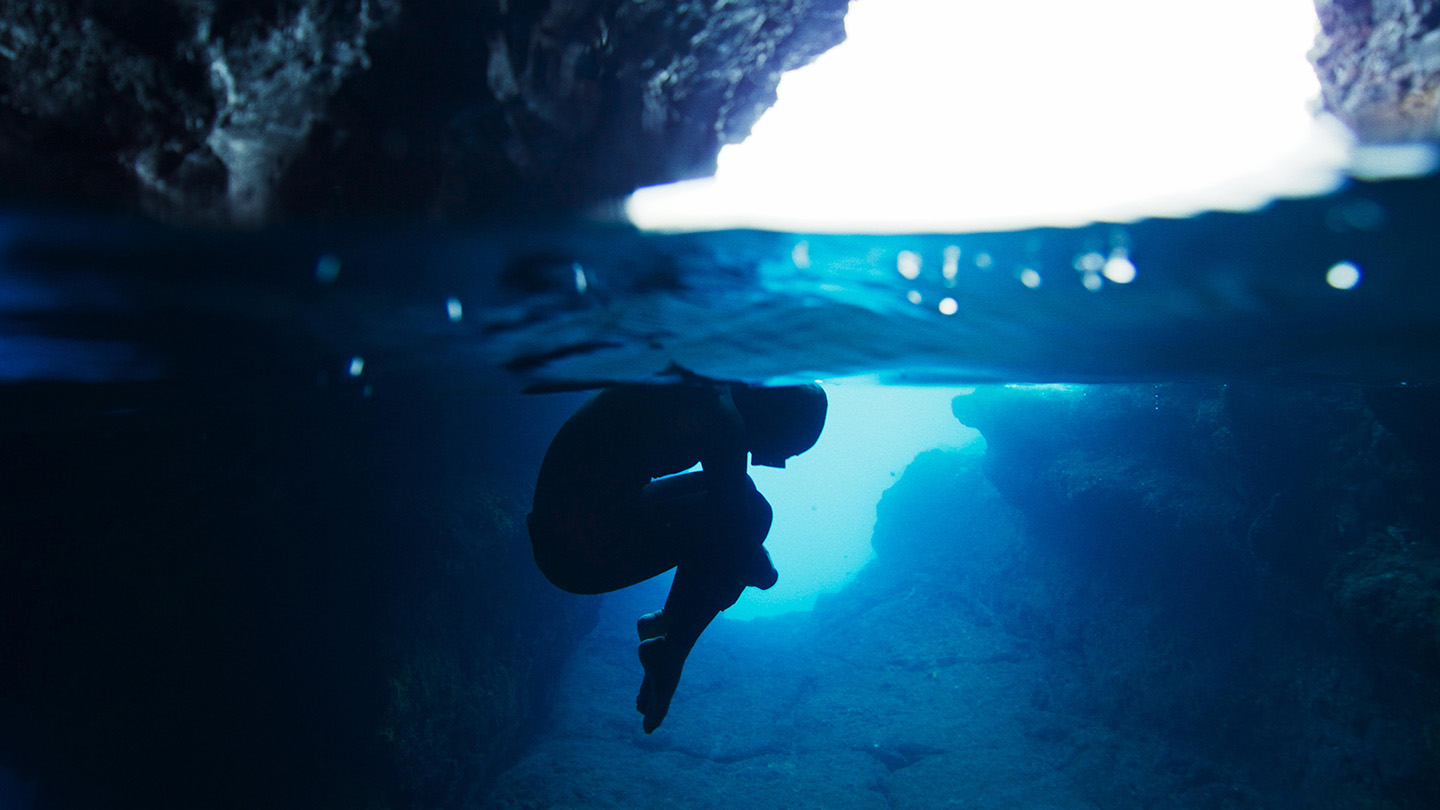
7 Beats Per Minute
Her near-death experience causes her to return to the scene of what she refers to as her “rebirth” in the Bahamas at the Blue Hole. She even changed her birth date on social media to the date she nearly died. Filmmaker Yuqi Kang followed Jessea Lu on her quest for five years. They became close and Yuqi even served as her safety diver in the Bahamas. Throughout the documentary, Yuqi is asking Jessea Lu to answer the question “What is this need to go deeper?”
THE GOOD
The images in “7 Beats Per Minute” are phenomenally beautiful. They are absolutely striking. Whether it is Jessea Lu standing on a cliff overlooking the ocean or the moon through a dark, cloudy sky, every image is beautifully composed and photographed. The original music (Frannie Holder, Mario Sevigny, Lauren Belec) and sound design (Sasha Ratcliffe), reminiscent of whale sounds, contribute to the documentary’s appeal.
THE BAD
Characters wander into frame and speak with no introduction. There is no identification of who Francesca is, nor of who Kirk, (onscreen making several questionable pronouncements) might be. We eventually learn that Kirk runs the school to train safety divers. So, the gorgeous photography is breathtakingly beautiful. The attention to the detail of who is speaking at any given moment: less impressive. There are some subtitles for the Chinese spoken, but much of the film is in English.
THE PSYCHOLOGICAL
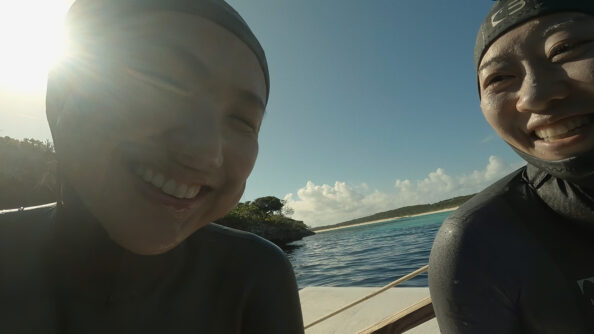
Jessea Lu and Yuqi Kang in “7 Beats Per Minute” at SXSW 2024.
The near-death dive in 2018 is the dramatic climax of the film. It seems odd that, after Jessea Lu nearly dies trying to break the world record and lies there, on deck, unconscious for 8 minutes, that the film later shows the team celebrating that day as her “rebirth.” Jessea Lu even changed her birth date on her social media platforms to reflect the day she almost died in the Bahamas. Of course, she DID survive and, therefore, it is a happy day for her, but is it really?
The question of what compels Jessea Lu to dive ever deeper is partially answered by her response that she feels safe and content in the ocean. Her existence shrinks when in the water. She especially feels safe when surrounded by the safety divers who accompany a freediver to the surface. They saved her life.
The question of Jessea Lu’s emotional status doesn’t emerge immediately. Jessea Lu explains that her goal in freediving (which she did not take up as a sport until the age of 30) is “to help myself have a more enjoyable life.” Jessea Lu has a PhD in Pharmacology, but she seems to need a Significant Other in her life. She lays out “20 years of the struggle in my heart.” She frightens us with talk of how the ocean, like the amniotic fluid that sustains a child before birth, may be “beckoning forgotten children to return.”
FAMILY HISTORY
Jessea Lu recounts her first suicide attempt at the age of six. A product of China’s one child years, her mother and father split when she was young. When Jessea was eight years old, her mother told her that she would be better off if Jessea Lu were dead. Words that describe Jessea Lu are “lonely” and “heartbroken.” Jessea Lu says “I was always miserable growing up.” She describes verbal and physical abuse. Jessea Lu received no hugs from her mother and is described as a broken soul. She wants someone to fill that void from her childhood, looking obsessively for someone to consistently be in her corner, protecting her and advocating for her. To survive the early psychological abuse, Jessea Lu learned to focus on surviving. Her mother’s hurtful remarks damaged her. Jessea Lu has taken this ability to focus on survival to new heights (or depths) via freediving.
She asks Yuqi to become her safety diver; Yuqi agrees. Later, Yuqi will question whether a line has been crossed between director and subject saying, “Perhaps I have become an intruder, emotionally stuck in a dark place…I feel stuck, but I move forward with Jessea Lu because we are a team.” Yuqi says to Jessea Lu, “I’m here to support you, but at some point it becomes too much.” Yuqi’s voice sounds very irritated.
CONCLUSION
At film’s end, Jessea Lu (who says she has not seen her family members in Changzhou, China for years) receives a message from her mother that acknowledges that “home should not be a war zone.” This unusual contact seemed vaguely positive.
By film’s end Jessea Lu expresses a desire to “connect to the force of life,” to let “the natural flow of life force” guide her future.
We wish her well as this visually stunning SXSW World Premiere documentary concludes.
